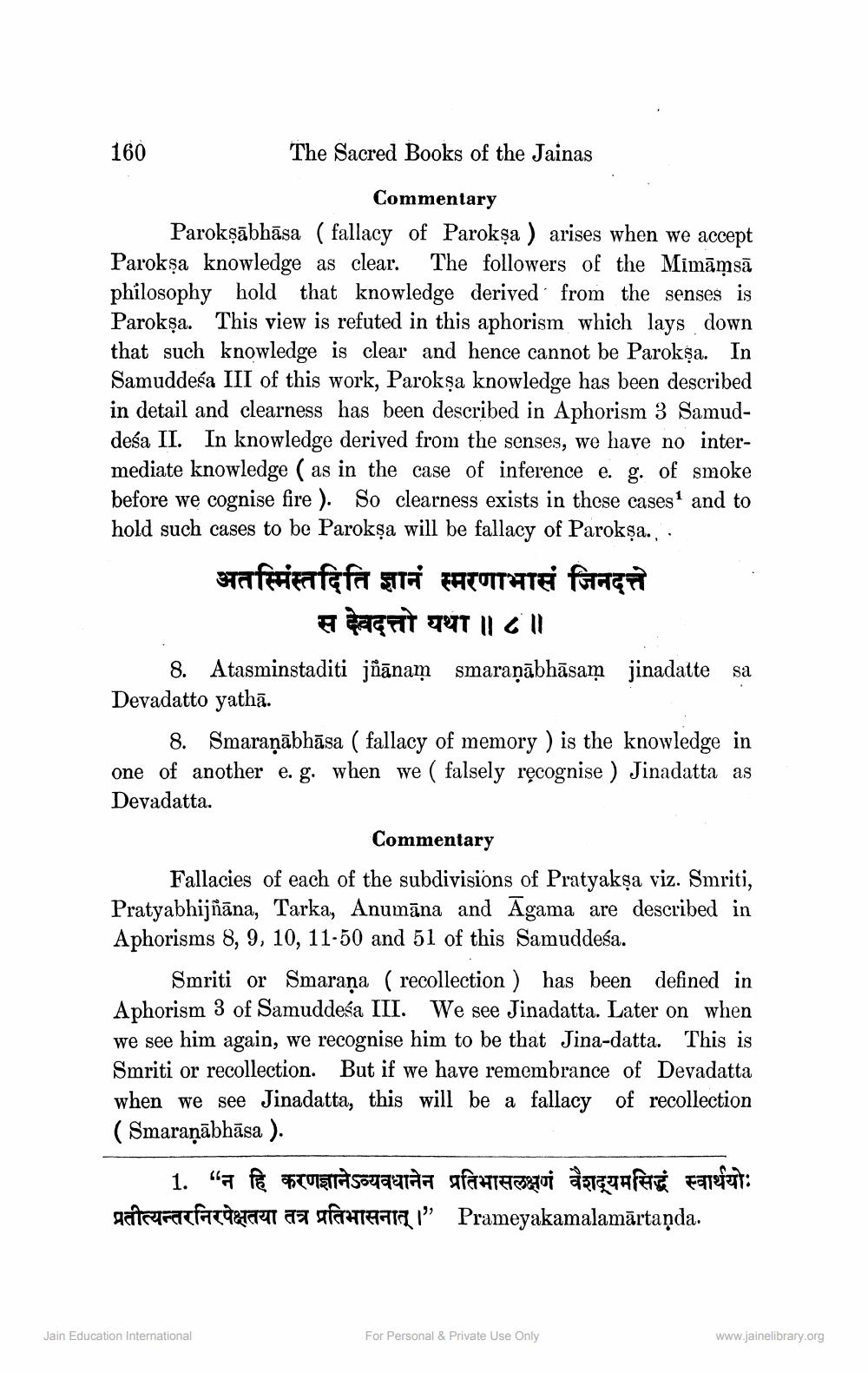________________
160
The Sacred Books of the Jainas
Commentary Parokşābhāsa ( fallacy of Parokşa ) arises when we accept Parokșa knowledge as clear. The followers of the Mimāmsā philosophy hold that knowledge derived from the senses is Parokşa. This view is refuted in this aphorism which lays down that such knowledge is clear and hence cannot be Parokşa. In Samuddesa III of this work, Parokşa knowledge has been described in detail and clearness has been described in Aphorism 3 Samuddeśa II. In knowledge derived from the senses, we have no intermediate knowledge ( as in the case of inference e. g. of smoke before we cognise fire ). So clearness exists in these cases and to hold such cases to be Parokșa will be fallacy of Parokşa., . अतस्मिंस्तदिति ज्ञानं स्मरणाभासं जिनदत्त
AFFIT TUT I Cll 8. Atasminstaditi jñānam smaraņābhāsam jinadatte sa Devadatto yathā.
8. Smaraņābhāsa ( fallacy of memory ) is the knowledge in one of another e. g. when we ( falsely recognise ) Jinadatta as Devadatta.
Commentary
Fallacies of each of the subdivisions of Pratyakşa viz. Smriti, Pratyabhijñāna, Tarka, Anumāna and Agama are described in Aphorisms 8, 9, 10, 11-50 and 51 of this Samuddeśa.
Smriti or Smaraṇa ( recollection) has been defined in Aphorism 3 of Samuddeśa III. We see Jinadatta. Later on when we see him again, we recognise him to be that Jina-datta. This is Smriti or recollection. But if we have remembrance of Devadatta when we see Jinadatta, this will be a fallacy of recollection ( Smaraņābhāsa ).
___ 1. "न हि करणज्ञानेऽव्यवधानेन प्रतिभासलक्षणं वैशयमसिद्धं स्वार्थयोः प्रतीत्यन्तरनिरपेक्षतया तत्र प्रतिभासनात् ।” Prameyakamalamartanda.
Jain Education International
For Personal & Private Use Only
www.jainelibrary.org




